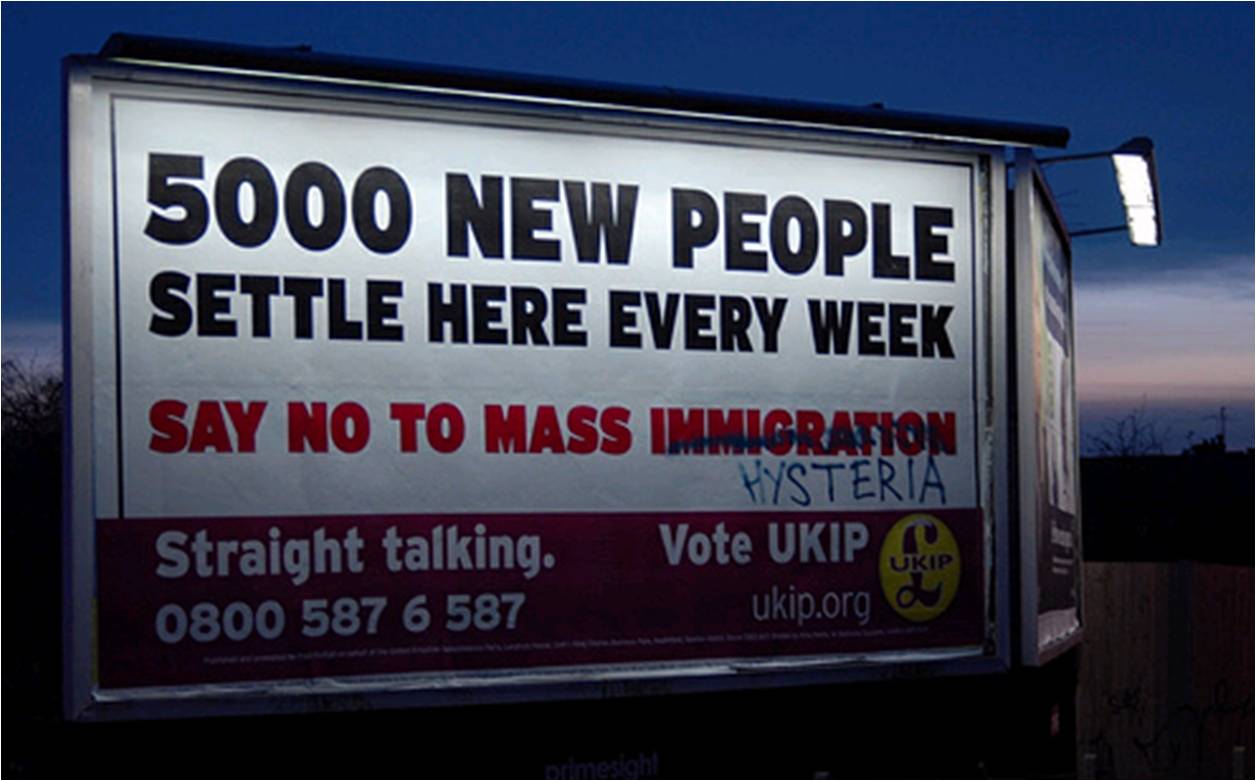The International Criminal Court, and the one-off tribunals it is intended to replace, face a tension if not a conflict between the aims of truth and justice. Bringing the perpetrators of awful crimes against humanity to justice is of course the official reason for these courts, but bringing out the truth of what happened is also usually cited. However I have the distinct impression that the Courts themselves have little faith in their ability to provide justice and see their service to truth as their greatest contribution.
Wednesday 27 November 2013
Sunday 24 November 2013
Britain's Sudden and Bizarre Resentment of Migration
 |
| Source |
All three of Britain's major political parties are competing to sound tough on migrants. I can't really condemn them for that, however, since they seem to be reluctantly acceding to the popular demand reflected in the opinion polls and the rise of 'nativist' political parties like UKIP. The successful diffusion of anti-racist social norms in recent decades has constrained the most natural expressions of anti-migrant prejudices. But the bizarre arguments now being trotted out about the harm foreigners do to British prosperity, rights, and culture remain an expression of xenophobia rather than reason.
Friday 22 November 2013
The myth that rights come with duties
Governments and tabloid newspapers constantly bemoan the unbalanced character of civil and human rights. "Don't they realise that society will collapse if rights are not balanced by duties?" they cry. The superficial attractiveness of this reactionary rhetoric has done much to undermine public support for the concept of rights. It must be challenged.
Thursday 14 November 2013
Moral philosophy about global warming
What contribution can moral philosophers make to public reasoning about global warming?
I make two recommendations, concerning style and substance. First, moral philosophers should be oriented to investigating rather than moralising. Our contributions to public reasoning about global warming must do more than select and promulgate an existing moral account in the usual style of normative ethics. Our work should engage with the moral complexity of the issue rather than exhort the public to follow some simplified view. Second, moral philosophers should make particular efforts to engage collaboratively rather than adversarially with social scientists working in this area. The natural sciences alone are an insufficient basis for analysing the causes of global warming and its meaning for us. Economics in particular can be seen as a branch of applied moral philosophy, and is rich in concepts and techniques highly relevant to the moral understanding of global warming.
I make two recommendations, concerning style and substance. First, moral philosophers should be oriented to investigating rather than moralising. Our contributions to public reasoning about global warming must do more than select and promulgate an existing moral account in the usual style of normative ethics. Our work should engage with the moral complexity of the issue rather than exhort the public to follow some simplified view. Second, moral philosophers should make particular efforts to engage collaboratively rather than adversarially with social scientists working in this area. The natural sciences alone are an insufficient basis for analysing the causes of global warming and its meaning for us. Economics in particular can be seen as a branch of applied moral philosophy, and is rich in concepts and techniques highly relevant to the moral understanding of global warming.
Sunday 3 November 2013
Why I do not wear a poppy
It is that time of the year again. Volunteers at train stations and shopping centres, often wearing military uniforms, are selling little red paper and plastic poppies to remember the service of British veterans. These little paper poppies have long taken over the official remembrance day and converted it into a month long ritual from which one cannot opt out without having to take a position. Well, here is my position.
I reject the coerciveness of the poppy ritual, the way it tries to bring everyone together around a single shared narrative of remembrance, with its compulsory yet glib emotions of gratitude and sorrow. I reject the unquestioning acceptance of the value of that military service and the implied necessity and meaningfulness of war in general. And I reject the government's intimate involvement. What should be an occasion for remembering the political failures that lead to wars has been neatly converted into a propaganda exercise that forecloses reasoned public scrutiny of our government's past, present and future militarism.
Subscribe to:
Posts (Atom)
